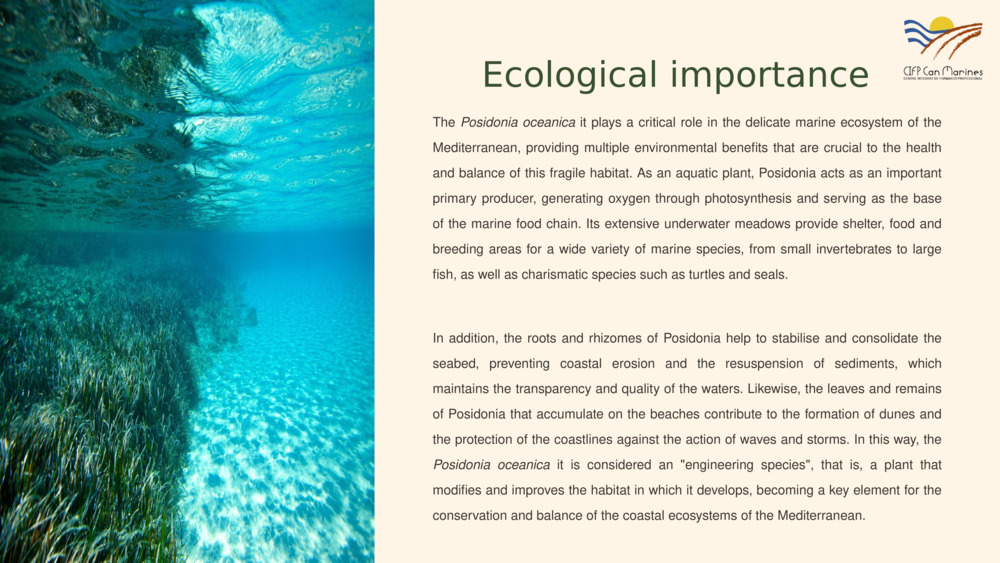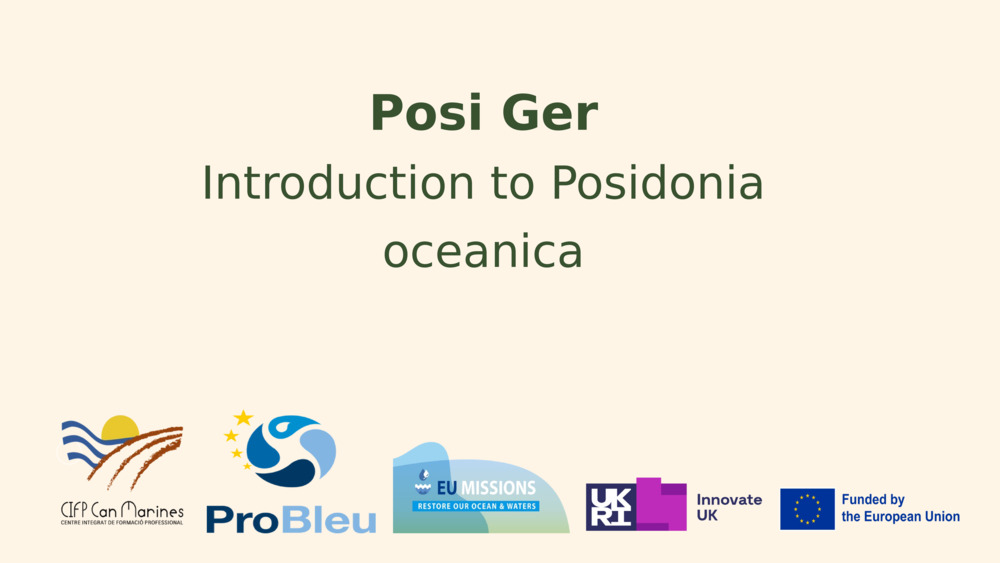Ecological importance
Ecological importance
Ecological importance The Posidonia oceanica it plays a critical role in the delicate marine ecosystem of the Mediterranean, providing multiple environmental benefits that are crucial to the health and balance of this fragile habitat. As an aquatic plant, Posidonia acts as an important primary producer, generating oxygen through photosynthesis and serving as the base of the marine food chain. Its extensive underwater meadows provide shelter, food and breeding areas for a wide variety of marine species, from small invertebrates to large fish, as well as charismatic species such as turtles and seals. In addition, the roots and rhizomes of Posidonia help to stabilise and consolidate the seabed, preventing coastal erosion and the resuspension of sediments, which maintains the transparency and quality of the waters. Likewise, the leaves and remains of Posidonia that accumulate on the beaches contribute to the formation of dunes and the protection of the coastlines against the action of waves and storms. In this way, the Posidonia oceanica it is considered an "engineering species", that is, a plant that modifies and improves the habitat in which it develops, becoming a key element for the conservation and balance of the coastal ecosystems of the Mediterranean.

Original Slide Deck: Introduction to Posidonia oceanica
Topics: Biodiversity. Ocean.
Suitable Ages: 12. 13. 14. 15. 16. 17. 18.
Keywords: Conservation. Ecosystems. Habitats. Warming. Water Quality.
Uploaded By: CIFPCanMarines
Number of bundles using this content: 1
Licensed under CC BY 4.0
This content has been used in the following resource bundles:
Introduction to Posidonia oceanica
Introduction of Posidonia: Description Habitat and distribution Eco...
View Bundle